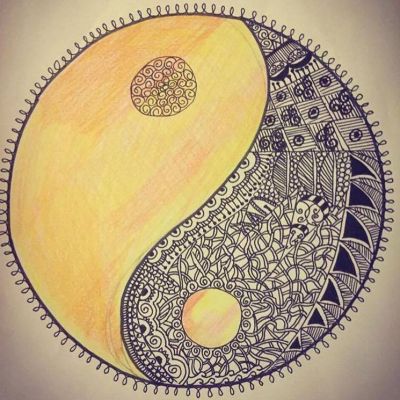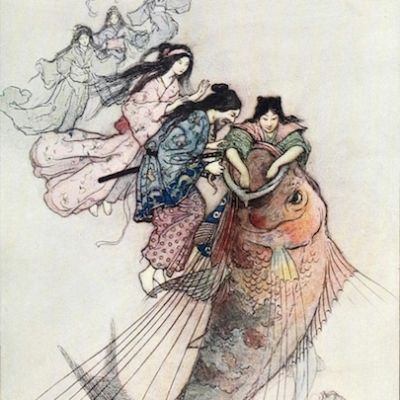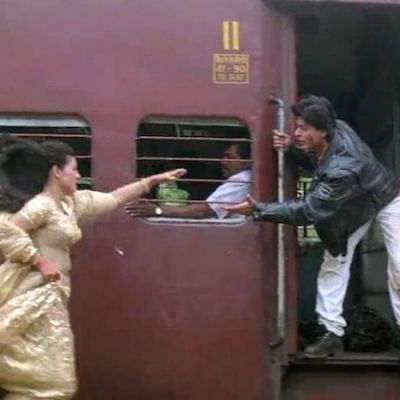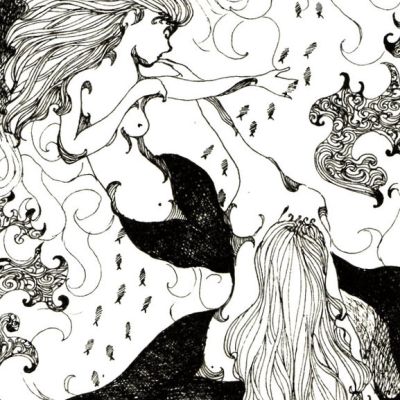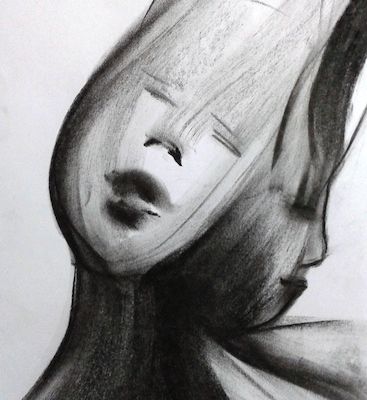Feminism
I do not feel the need to fight the feminist war within these spaces all the time, now that it has become my home. I have come to terms with the idea that certain contradictions can co-exist peacefully like the yin and yang. But still, sometimes, my mind is roiled in conflict, with me cautiously trying to balance my two identities – the feminist and the army officer’s wife. Nevertheless, I am unwilling to give up one for the other (even if I might be perceived as being less of one of them). So I continue to be an individual with two seeming contradictions: a feminist army-officer’s-wife!
By: Amla Pisharody In August 2016, APC along with some activists and feminists which also included Feminism in India revised and…
अगर इन्टरनेट न होता, तो मुझे लगता है कि मैं खुद में बहुत ही असुरक्षित महसूस करती। इस बात से…
Suddenly, three older, high-ranking female bonobos bolted up from below, a furious blur of black fur and swinging limbs and, together with the female in estrus, flew straight for the offending males. The males scattered. The females pursued them. Tree boughs bounced and cracked. Screams on all sides grew deafening.
Delhi-based queer feminist activists Rituparna Borah and Jaya Sharma recorded a conversation they had about their views around marriage. While both women maintain their stances of critique towards the institution of marriage, what they agree upon and investigate as their chat progresses is that marriage has a pull that even its staunchest opponents will have to acknowledge and attempt to understand.
ऑड्रे लार्ड ने एक बार कहा था, “अपनी देखभाल करने का ये मतलब नहीं कि मैं स्वार्थी हूँ, देखभाल स्वयं…
Audre Lorde once said, “Caring for myself is not self-indulgence, it is self-preservation, and that is an act of political warfare.”
Twitter was hashtagging the 21st anniversary of the classic Bollywood film, ‘Dilwale Dulhania Le Jayenge’ (1995) a few months ago, a human rights organisation did a fun take on it by asking its followers to feminist up the film’s iconic dialogue, “Ja, Simran, Ja”.
“Mamma, look, that’s a boy giraffe, I can see his penis,” exclaims my four-year-old daughter in delight at her discovery as we stand watching the stately animals at the fabulous Mysore Zoo. Far from cringing at the over-loud tones of my daughter, I beam at her, “That is clever of you.”
Even in these times when sexuality is talked about more than ever before, even as we are beginning to talk about sexual pleasure and not just violations, acknowledging our fantasies isn’t easy, particularly if they are of the kind that seem to defy our politics.
सामान्य तौर पर एक नारीवादी माँ का काम, जो रोज़मर्रा की चर्चा में यौनिकता के बारे में बात करने के लिए दृढ संकल्पी हो, अनिश्चितता से भरा है। अन्य नारीवादी दोस्तों के साथ बातचीत और संसाधनों जैसे तारशी की अभिभावकों के लिए लिखी गई उत्कृष्ठ किताब द यलो बुक से उत्पन्न मेरी रणनीति है कि सवालों का ठीक-ठीक जवाब देना, जब भी वे पूछे जाएँ। हालाँकि, मुझे उम्र के हिसाब से जानकारी देना सीखने में समय लगा।
वह एक ऐसे परिवार में बड़ी हुई थीं जहाँ बनने संवरनें की सराहना की जाती थी, इसलिए कपड़ों के प्रति उनकी चाहत को कभी भी विलासिता की तरह नहीं देखा गया। उनकी माँ की शख्शियत की एक विशिष्ट पहचान, उनकी बड़ी सी बिंदी और सूती साड़ी हमेशा अपनी जगह पर रहती थी, चाहे दिन का कोई भी समय हो, चाहे वो खाना बना रहीं हों, धूप या बारिश में बाहर गई हों, सो रहीं हों या बस अभी ही जागी हों, हंस रहीं हों, या रो रहीं हों। उनकी और उनकी बहन के लिए, उनकी माँ की फैशन को लेकर एक ही सलाह थी, “हमेशा ऐसे तैयार होकर रहो जैसे आप बाहर जा रहे हों, भले ही आप सारा दिन घर पर ही हों।” अपनी माँ की सलाह के बावजूद, वह घर पर ‘गुदड़ी के लाल’ की तरह और बाहर जाते वक़्त ‘सिंडरेला’ की तर्ज़ पर चलने वाली बनी।
The link between women’s clothing and patriarchy is important to acknowledge and understand if we are to address some pertinent questions around women’s agency and ability to exercise control over their choices, bodies and sexuality – questions that feminists around the world, including in South Asia, continue to struggle with.
Feminist critiques are often critiques of relationship structures: marriage, the joint and nuclear family, monogamy, and heteronormativity. Patriarchy, fundamentally a system of inheritance, finds a natural home in these structures.
This is why I’ve often wondered: how do feminists imagine and navigate romantic relationships? Do they have to constantly be thinking about and watching out for the many ways in which power, privilege, autonomy and entitlement manifest in their relationships and dating culture? It seems rather unromantic to do so.
Often when we speak of families and family history, we talk genetics, traditions and inheritance of all kinds. Somehow our relationship by blood or otherwise to a clan is supposed to help us identify our place in the universe. So there’s family medical history, family culture, family traditions of food and career. But sexuality? A family history that focuses on sexuality? What would that even mean?

